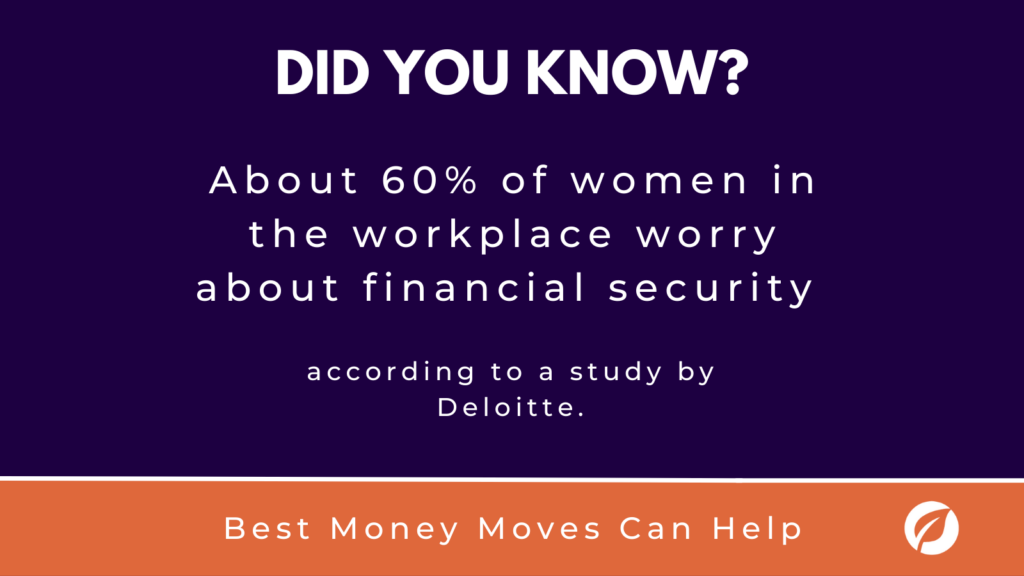Although women in the workplace have come a long way in the fight for parity, employees still face many unique challenges compared to their male coworkers. This year, in Deloitte’s 2023 Women @ Work report, Deloitte shares several powerful insights into women’s unique challenges at work.
We’ve highlighted our top three takeaways from the survey, along with 3 solutions to promote equity and inclusion for all members of your team.
1. Over 50% of women in the workplace struggle with their mental health
Mental health in the workplace looks very different today than from pre-pandemic times — companies provide increasingly more support and open discussion about the importance of mental health. However, despite this progress, more than half of women say they’re concerned about their mental health.
On top of chronic stress and burnout, women increasingly report that they don’t feel like they can turn “off” from work (60% per Deloitte’s report). This means that in moments where female employees are supposed to be “off” or unplugged from work (e.g., time off, vacation, break time, etc.), there’s a looming pressure to be plugged into work (often by checking emails, replying to direct messages or even actively working or projects). Without having time to turn off and unplug, women’s well-being and overall productivity become at risk.
Having the opportunity to rest and recharge allows employees to show up as their best selves. Managers, executives and HR professionals alike can support employees’ mental health by finding ways to ensure protected time off. For instance, when an employee is granted time off, ensure there are systems in place such as effective project management, balancing workloads or even looping in additional support resources.
2. Women with menstrual health and menopausal challenges suffer in silence.
The lack of open dialogue around women’s health has caused many of them to suffer in silence, including in the workplace. About 40% of women with menstrual health challenges report that they work through their pain and ailment, as opposed to speaking up and requesting time off. This is largely because of the prevailing stigma and lack of support around women’s health, especially in the workplace.
For the few women that did end up taking time off and disclosed menstrual health or menopause as the reason why, several expressed that they did not receive the appropriate support from their employer, according to Deloitte’s findings. About 5% of the women surveyed say this lack of support was a contributing factor in them leaving their employer.
Supporting women’s health and well-being may require companies to revisit and update policies around sick leave and/or personal days. For instance, it may be beneficial to change the language in your corporate handbook to explicitly include menstrual and menopausal health as valid reasons to take sick time and/or a personal day. This can extend inclusive and equitable support for any women and non-binary employee dealing with menopausal and menstrual health challenges.
3. About 60% of women in the workplace worry about financial security
A leading worry among women in the workplace is financial security — according to Deloitte’s report, about 60% of women cite money as a top concern. And financial stability and security is an even greater worry among women of color.
There are several factors behind women’s financial stress and worry — first, women tend to earn less wages than men for the same work (and women of color earn even less than their white peers). On top of the gender wage gap, many women feel the need to prioritize their partner’s career over their own — largely because their partner is the breadwinner. Regardless of a person’s financial standing, financial stress can affect anyone — but with the right tools and resources, financial stress can be addressed and dialed down.
One way companies can help women improve their financial wellness and security is by offering targeted financial wellness benefits. One of the first places employees turn to for well-being support is their place of work. By offering a robust financial wellness program, companies can support women employees toward improved financial well-being and security. Moreover, these benefits can empower women employees to confidently manage their finances and improve their financial well-being.
Looking for a financial wellness program fit for all? Try Best Money Moves!
Best Money Moves is a mobile-first financial wellness solution designed to help dial down employees’ most top-of-mind financial stresses. As an easy-to-use financial well-being solution, Best Money Moves offers comprehensive support toward any money-related goal. With 1:1 money coaching, budgeting tools and other resources, our AI platform is designed to help improve employee financial well-being.
Whether it be retirement planning or securing a mortgage, Best Money Moves can guide employees through the most difficult financial times and topics. We have robust benefits options for employers, regardless of their benefits budget.
Our dedicated resources, partner offerings and 700+ article library make Best Money Moves a leading benefit in bettering employee financial wellness.
To learn more about Best Money Moves Financial Wellness Platform, let’s schedule a call. Contact us and we’ll reach out to you soon.


